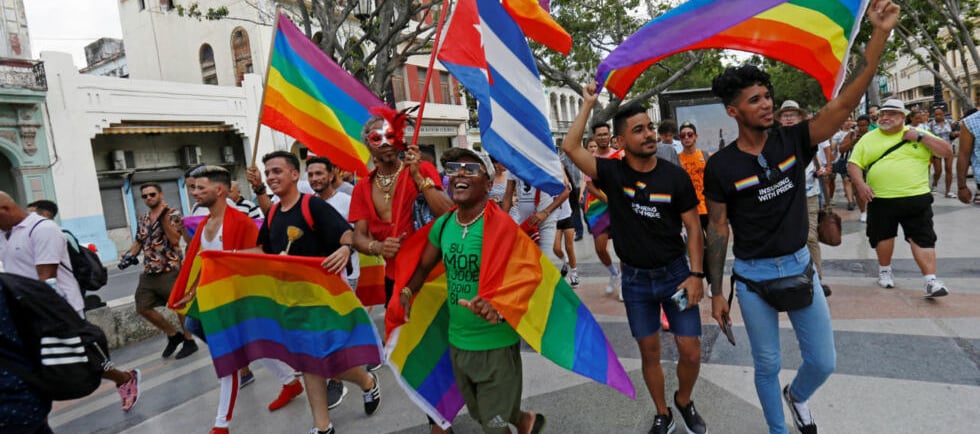A Quiet Revolution in Cuba
Churches of Love and Inclusion
2 min read


A Quiet Revolution in Cuba: Churches of Love and Inclusion
In Cuba, a country known for its lively music, rich traditions, and complex history, a new kind of change is happening. The Rev. Elaine Saralegui is at the heart of this movement. In the bustling port city of Matanzas, she leads a church that welcomes the LGBTQIA+ community with open arms. Her work reflects a growing acceptance in Cuba, a country that has not always been kind to LGBTQIA+ individuals. This shift toward inclusivity gives hope for progress, not only in Cuba but across the Caribbean.
LGBTQIA+ Rights in Cuba: A Journey of Change
Cuba’s history with LGBTQIA+ rights has been difficult. After the 1959 revolution led by Fidel Castro, many groups were marginalized, including LGBTQIA+ individuals. Being gay was heavily stigmatized, and many faced persecution, discrimination, and even imprisonment in labor camps.
Change came slowly. In 2010, Fidel Castro publicly admitted that targeting gay individuals was wrong. In 2022, Cuba made significant progress by passing laws that protected LGBTQIA+ rights, including same-sex marriage and adoption for same-sex couples. These reforms opened the door for churches like Rev. Saralegui’s to embrace a message of love and inclusion.
The Catholic Church and LGBTQIA+ Acceptance
The Catholic Church is deeply rooted in Cuban culture and has long held conservative views on LGBTQIA+ issues. However, Pope Francis has encouraged a more welcoming attitude, offering hope to LGBTQIA+ Catholics worldwide. While the Church still officially opposes same-sex unions, Pope Francis has spoken out in favor of LGBTQIA+ families and has even approved blessings for same-sex couples.
Despite this progress, not everyone agrees. Some religious leaders and members of the Church criticize Pope Francis, believing that traditional doctrine should remain unchanged. Yet, even within conservative circles, small communities are beginning to embrace a message of acceptance.
The Caribbean’s Struggle for Equality
Cuba is not the only Caribbean nation grappling with LGBTQIA+ rights. In recent years, countries like Belize, Trinidad and Tobago, and Antigua and Barbuda have taken steps to overturn outdated laws that criminalize same-sex relationships. These changes have been hard-fought and represent important victories for LGBTQIA+ equality in the region.
However, in many other Caribbean nations, such as Jamaica and Guyana, laws against same-sex relations still exist. These laws are often defended by religious leaders and lawmakers who cite Christian beliefs. This creates ongoing challenges for LGBTQIA+ individuals, who face stigma, discrimination, and legal barriers.
A Beacon of Hope in the Caribbean
Rev. Saralegui’s church in Cuba stands as a powerful symbol of change. Flying a rainbow flag in the Caribbean breeze, her church represents love, inclusion, and the possibility of a brighter future. It’s a reminder that even in the face of resistance, progress is possible. Grassroots movements, Pride celebrations, and inclusive spaces like her church show that the LGBTQIA+ community is resilient and determined.
As inclusive churches grow in Cuba and beyond, they pave the way for a more understanding and accepting society. Challenges remain, but the courage and commitment of leaders like Rev. Saralegui offer hope for a future where love and inclusion triumph over prejudice.
Empowerment
Reclaiming faith for all.
Connect
© 2024. All rights reserved.
Content Disclaimer: All content shared on Pride Faith Voices belongs to the individual writers and reflects their personal views and experiences. These opinions and perspectives do not necessarily represent the official stance of Pride Faith Voices as a whole.
